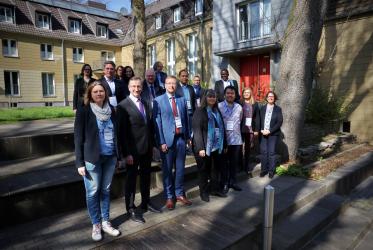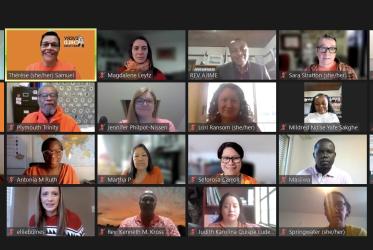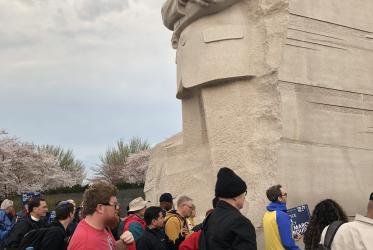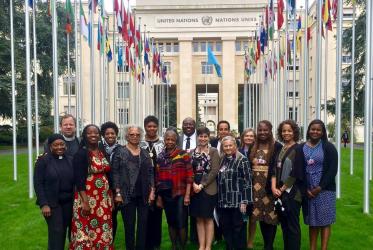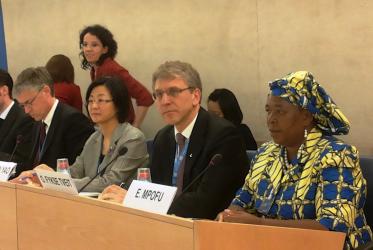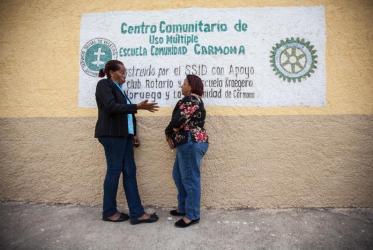Displaying 1 - 20 of 30
“Dear white Christians: what now?”
05 April 2018
WCC 70th anniversary started in Beijing
07 January 2018
“The work of truth-telling has to happen”
28 September 2017
Church leaders address statelessness in Dominican Republic
03 February 2015
Use of armed drones condemned by WCC
13 February 2014
Christian leaders “fast for fair food”
02 March 2012
Human trafficking: violence against humanity
22 May 2011
Living Letters team to visit the Philippines
25 November 2010
WCC Executive Committee issues statements on Myanmar, Nigeria and Sudan
21 September 2010
